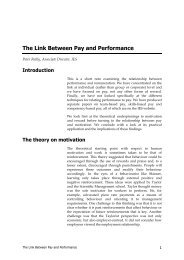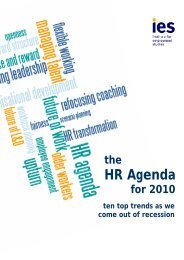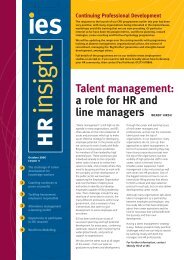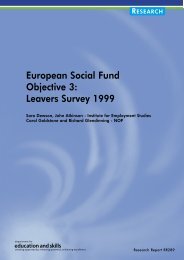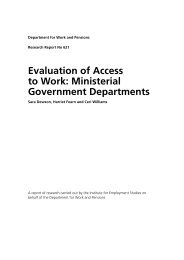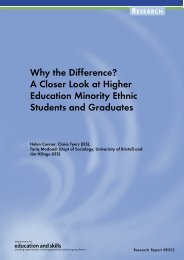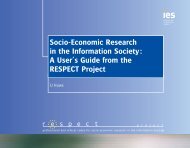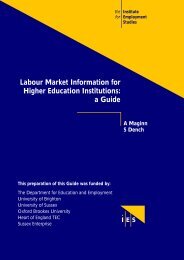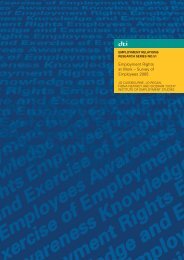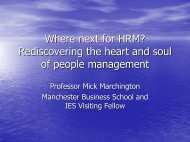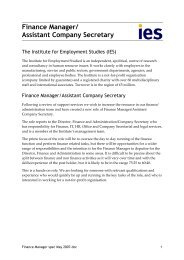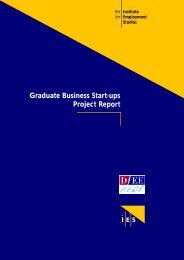Post-16 Transitions: a Longitudinal Study of Young People with ...
Post-16 Transitions: a Longitudinal Study of Young People with ...
Post-16 Transitions: a Longitudinal Study of Young People with ...
You also want an ePaper? Increase the reach of your titles
YUMPU automatically turns print PDFs into web optimized ePapers that Google loves.
1. Introduction<br />
This report presents the findings <strong>of</strong> a second wave <strong>of</strong><br />
longitudinal research <strong>with</strong> young people <strong>with</strong> special<br />
educational needs (SEN) to record and track their progress as<br />
they move from compulsory schooling to early adulthood. The<br />
first wave <strong>of</strong> research <strong>with</strong> young people <strong>with</strong> SEN, and their<br />
parents and carers, was undertaken by the Centre for<br />
Formative Assessment Studies at the University <strong>of</strong> Manchester<br />
in 2000/01. These young people had been on SEN Stage 2 for<br />
two years or more, or were on higher SEN stages (regardless<br />
<strong>of</strong> time), and were in curriculum Year 11 during that academic<br />
year (these stages relate to the Code <strong>of</strong> Practice in force in<br />
2000/01). This second wave <strong>of</strong> research involved going back to<br />
these young people, and their parents and carers, in the<br />
2002/03 academic year and has sought to build on, and<br />
update the earlier study. This research was commissioned by<br />
the Department for Education and Skills (DfES) and was<br />
undertaken by the Institute for Employment Studies in<br />
partnership <strong>with</strong> MORI and Pr<strong>of</strong>essor Alan Dyson <strong>of</strong> the<br />
University <strong>of</strong> Manchester.<br />
1.1 Aims and objectives <strong>of</strong> the study<br />
The overall aims <strong>of</strong> the research have been to:<br />
• Provide a comprehensive overview <strong>of</strong> the experiences,<br />
achievements and attitudes <strong>of</strong> young people <strong>with</strong> SEN<br />
during their post-<strong>16</strong> transitions and beyond.<br />
• Identify the strengths and weaknesses <strong>of</strong>, and barriers to,<br />
further education, higher education, training, employment<br />
and independent living.<br />
The key objectives for this second wave <strong>of</strong> research were to:<br />
• Identify educational outcomes from school for young<br />
people <strong>with</strong> SEN.<br />
• Identify their activities on leaving school.<br />
• Identify the support mechanisms available to young<br />
people <strong>with</strong> SEN as they begin early adult life, and<br />
<strong>Post</strong>-<strong>16</strong> <strong>Transitions</strong> <strong>of</strong> <strong>Young</strong> <strong>People</strong> <strong>with</strong> SEN: Wave 2 1



